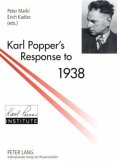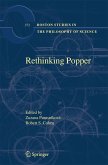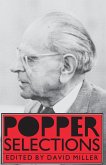Karl R. Popper is widely regarded as one of the most influential 20th century philosophers. In this new biography, Weinert provides a comprehensive and accessible account of his life and work, also addressing Popper's role as a public intellectual. Drawing on a wide range of sources and interviews with former colleagues and collaborators, he recounts not only the wide interest from the scientific community, but also the inspiration that politicians took from Popper's work. The book surveys the vast and varied intellectual landscape of Popper's philosophical journey during his long career: from the natural and social sciences (physics, evolution, sociology) to political philosophy and the philosophy of mind. It pays significant attention to Popper's critical method - i.e., the notion that ideas and institutions should be exposed to rigorous tests - the approach that led him to a fervent defence of objectivity, rationality and realism, against all forms of irrationalism, as well as a passionate advocacy of freedom, social justice and liberal democracy, against all forms of authoritarianism. The book brings Popper into focus as a modern Enlightenment philosopher.
Bitte wählen Sie Ihr Anliegen aus.
Rechnungen
Retourenschein anfordern
Bestellstatus
Storno









